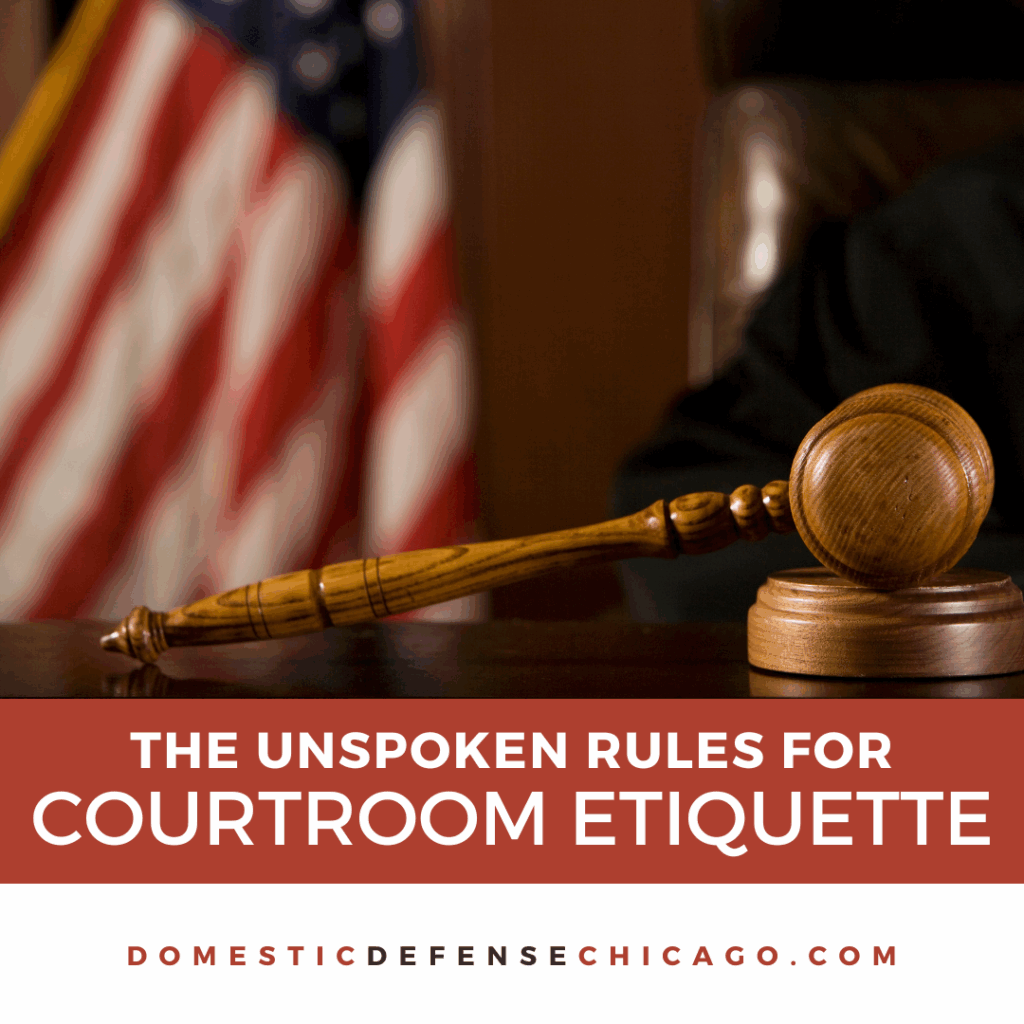Courtroom procedures may be spelled out in the law, but how you conduct yourself in court often comes down to unspoken rules. These aren’t written in your summons or explained when you arrive, yet they can shape how judges, prosecutors, and even jurors perceive you.
In a domestic battery case, where credibility and demeanor can carry significant weight, court etiquette becomes more than just a matter of politeness—it’s part of your defense presentation. While no lawyer can guarantee a specific outcome, following these guidelines can help you and your attorney pursue the best possible result.
Why Etiquette Matters in Court
Court isn’t just about facts—it’s also about perception. Judges and juries may not consciously note every behavior, but they often form impressions based on how you present yourself. Positive courtroom demeanor can:
-
Convey respect for the process
-
Show that you take the charges seriously
-
Help your attorney’s arguments land more effectively
Conversely, poor etiquette can distract from your defense and make you seem indifferent or disrespectful.
Arriving Prepared and On Time
Arriving late can set a negative tone before your case even begins. Aim to be at the courthouse at least 30 minutes early, allowing time for:
-
Parking or public transportation delays
-
Security checks
-
Locating the correct courtroom
Being early also gives you a chance to speak with your attorney privately before proceedings start.
How to Enter and Exit the Courtroom
These small actions matter:
-
Stand when the judge enters or exits.
-
Remove hats and sunglasses before entering.
-
Keep your phone turned off and out of sight.
If you’re unsure whether to stand or sit, follow your attorney’s lead.
Addressing the Judge
Always address the judge as “Your Honor.” Speak clearly and respectfully, even if you disagree with something being said. Avoid interrupting—your attorney will have a chance to respond on your behalf.
Nonverbal Communication
Your body language can speak as loudly as your words:
-
Maintain a calm, neutral expression.
-
Avoid rolling your eyes, crossing your arms tightly, or shaking your head.
-
Keep your posture upright and attentive.
Even when you’re not speaking, the court is watching.
Interacting With Others in the Courtroom
While waiting for your case to be called:
-
Avoid chatting loudly with friends or family.
-
Do not react visibly to other cases being heard.
-
Stay near your attorney so they can update you if needed.
If the accuser is present, avoid any eye contact or interaction—direct or indirect.
Handling Nerves Without Drawing Attention
It’s normal to feel anxious, but try to manage stress in a way that doesn’t distract from proceedings:
-
Take slow, quiet breaths.
-
Keep your hands relaxed on the table or in your lap.
-
Avoid fidgeting with papers, pens, or clothing.
Your attorney can prepare you for when you might need to speak, which can also help reduce anxiety.
Following the Court’s Lead
Courtrooms can have slightly different customs depending on the judge. Some may be stricter about certain behaviors, while others may be more relaxed. Your attorney will be familiar with the specific courtroom culture and can guide you on what to expect.
For general courtroom behavior guidelines, the Illinois Courts’ official site provides an overview of procedures and expectations.
How an Attorney Can Help
An attorney can’t promise that perfect etiquette will change your verdict, but they can:
-
Prepare you for the specific expectations in your courtroom
-
Advise you on how to respond to questions or unexpected situations
-
Ensure your demeanor supports the overall defense strategy
In a domestic battery case, every detail matters—including how you carry yourself in the courtroom. By learning and following the unspoken rules of court etiquette, you give your attorney one more advantage in presenting you in the best possible light.
Do You Need to Talk to an Attorney About Domestic Battery Defense?
If you need to talk to a domestic battery defense attorney in Illinois, we’re here to help. Call us at 847-920-4540 now – we’ll be happy to give you a free consultation and talk to you about your options.







Leave A Comment
You must be logged in to post a comment.